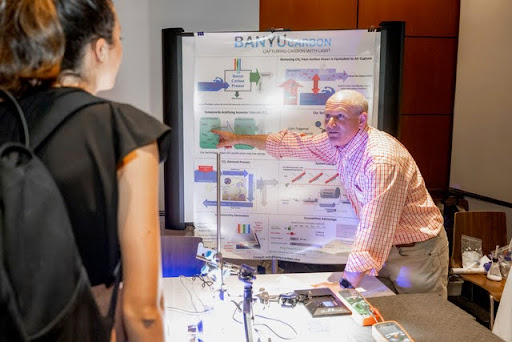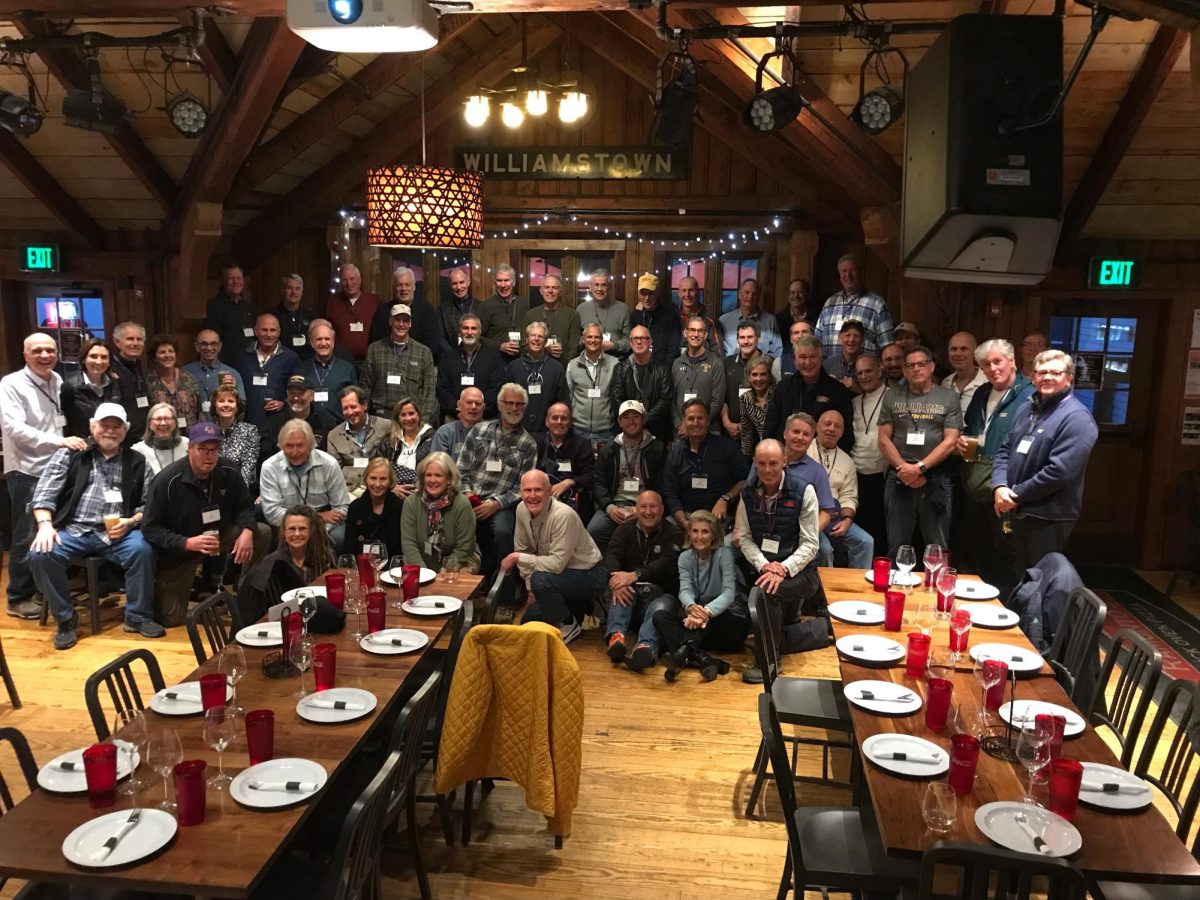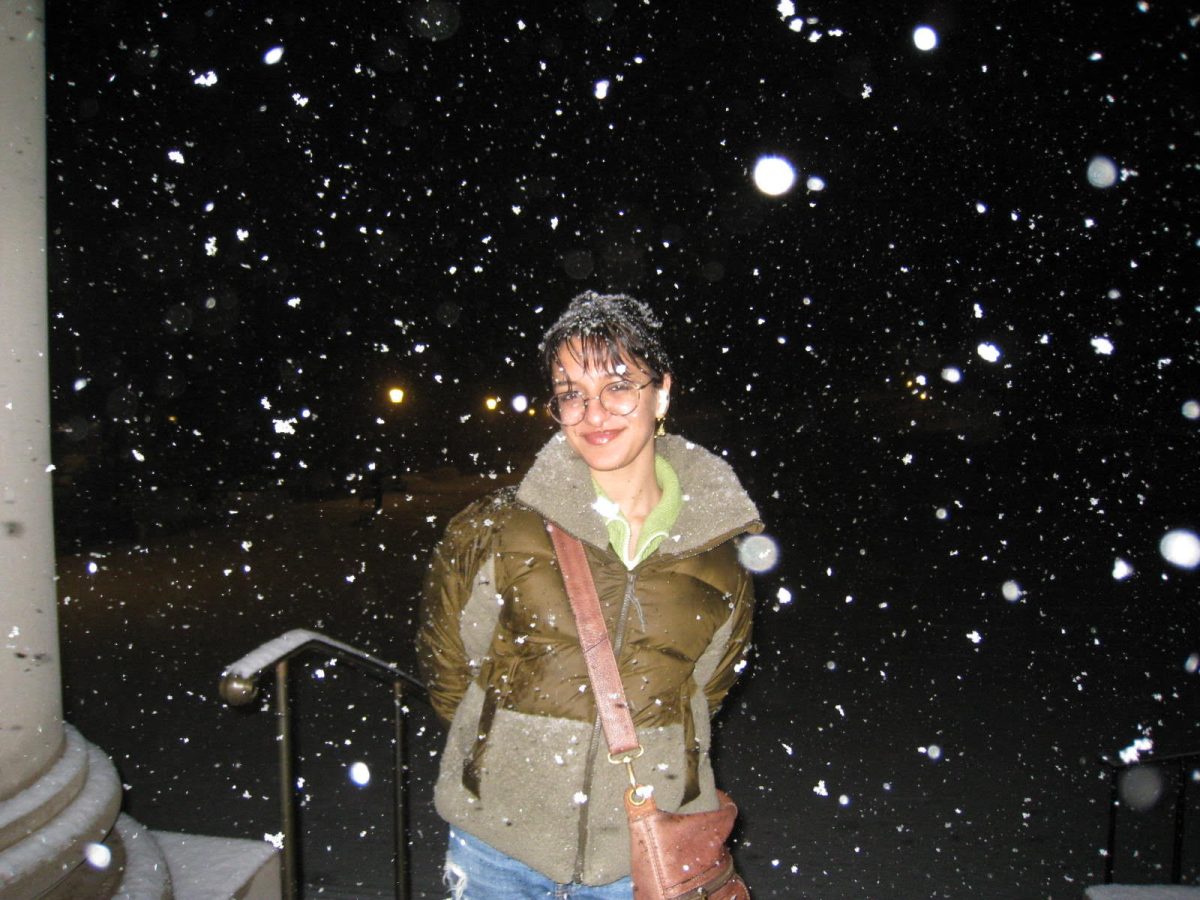
To keep global temperatures under dangerous levels, some climate scientists are focusing their efforts on removing carbon from the air — a feat that once seemed daunting. Through their work, Julian Sachs ’89 and co-founder Alex Gagnon hope to offer potential solutions for the future of carbon capture. In 2022, Sachs patented a technology called Banyu Carbon that uses sunlight and seawater to produce a chemical reaction that releases carbon dioxide. Removing carbon dioxide from seawater subsequently reduces the amount of carbon dioxide in the atmosphere.
After graduating from the College with a degree in astrophysics, an experience that furthered his “love of the universe and the natural world,” Sachs obtained a doctorate in oceanography from MIT and began working as an oceanography professor. He currently works at the University of Washington.
Sachs came upon the idea for Banyu Carbon while researching ocean acidification at the University of Washington. Sachs and his team extracted carbon dioxide out of deepwater, which is especially concentrated with carbon dioxide, and added this captured carbon dioxide into surface water to simulate 21st-century conditions. This technique initially allowed Sachs and his team to analyze and predict the effects of increased carbon dioxide in the water at the ocean’s surface.
But later, he wondered how else he could use these carbon dioxide removal techniques. “[It] got my collaborator and I thinking about maybe using … the technique we had come up with to just try removing carbon dioxide from [the ocean’s] surface,” Sachs said. “In that way, maybe we could come up with a way to mitigate global warming.”
From there, Sachs and his team created Banyu Carbon, an organization that aims to reduce the price and energy-use requirements of the carbon removal process.
Banyu Carbon quickly gained traction. “We formed the company under two years ago,” Sachs said. “Within a few months of forming the company, we had gotten a couple million dollars from a foundation that learned about [and supported] what we were doing, and that sort of got us going.” Organizations such as Stripe, Shopify, and H&M are now all buyers of Banyu Carbon.
Over the last year, their progress continued as they built a working prototype and raised significant funding from investors. Sachs explained that their current prototype removes carbon dioxide on the order of grams, but he hopes to build a pilot by this summer that can remove kilograms of carbon dioxide.
Banyu Carbon also recently signed with its first customer. “A company pre-purchased for half a million dollars our first 350 tons of carbon dioxide removal,” Sachs said. “We have to deliver by the end of 2026, so everything’s looking super positive and exciting right now.”
Despite these successes, Sachs admitted that he faced challenges organizing and managing the company. Both Sachs and his co-founder have been professors for the last three decades and do not have business management experience.
“You have to figure everything out,” Sachs said. “You want to offer health insurance to your employees, so we’ve got to figure that out.”
“While none of those things, individually, is a massive challenge, taken together, it’s a lot of work,” he continued.
When asked about advice for students at the College who are passionate about climate change, he underscored the value of mindset shifts. “Be optimistic, be hopeful,” he said. “That’s really important.”
Sachs responds to students’ climate pessimism with optimism, highlighting the power of human ingenuity. “People … cause a lot of problems, but [they] can also be the source of remarkable solutions,” Sachs said.
“I’m hoping that your generation and your fellow Williams students will take the mantle from an older generation that doesn’t really understand how much damage humans can actually do to the natural environment,” he added.
Sachs emphasized the importance of viewing humans’ relationship with nature as cooperative, not antagonistic. “I think your generation [doesn’t] see it as men versus nature,” Sachs said. “I think you guys, by and large, … have a little bit more [of a] holistic view of [your]selves on the planet, and that gives me hope.”
“Just try to live as though you’re just one species on a remarkable planet,” he said.








